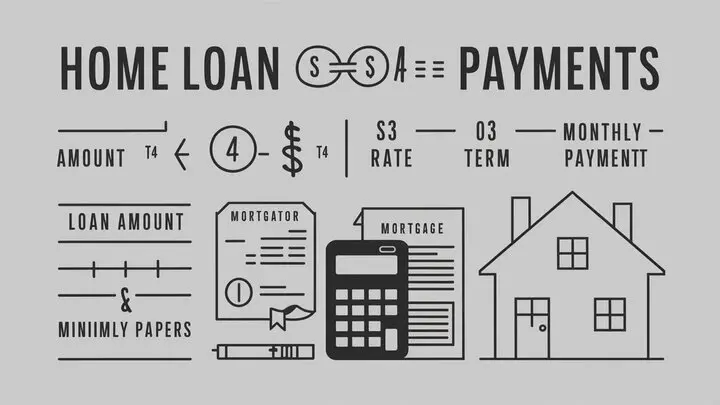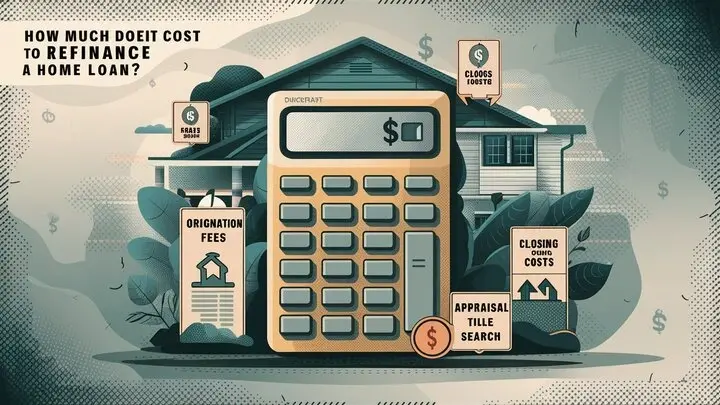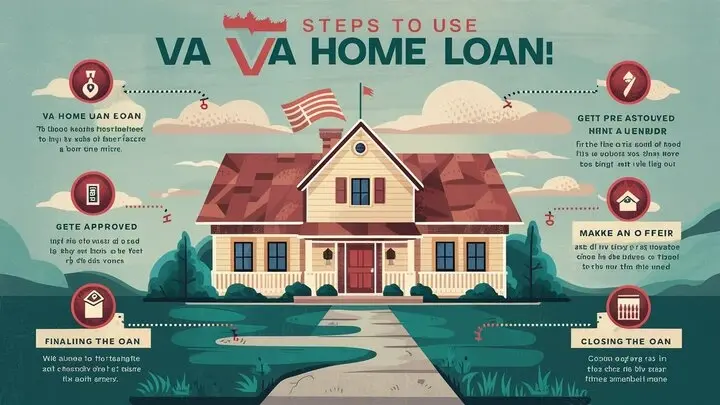-
Posted on: 23 Aug 2024

-
Home equity loan is a form of loan where a borrower is able to use their home as surety to receive the amount of money they need. Equity is the portion of the home that is actually owned by the homeowner and it can be arrived at by deducting the remaining balance on the mortgage from the current market value of the home.
The information about how home equity loans work
A home equity loan, on the other hand, involves the lender offering the homeowner a one-time cash payment with an agreed tenure of repaying the cash together with an agreed interest for a given number of years that ranges from 5-30 years. The borrower repays the loan in equal monthly payments as in the case of a mortgage or an auto loan.
A specific sum that a lender is willing to provide will depend on the amount of collateral that a borrower has. The majority of lenders will be lending up to 85% of the property’s value less any remaining mortgage balance. Therefore, if the home is worth $300,000 and there is $100,000 remaining on the mortgage, the maximum home equity loan would be approximately $170,000.
Advantages of Home Equity Loans
Several potential benefits make home equity loans attractive for some homeowners:
-
It is a way through which people can get access to cash for home renovations, bill consolidation, medical bills, college tuition, and other uses without necessarily selling their houses. The loan ensures that the borrower receives money at once in a single lump sum.
-
Lower interest rates than credit cards or personal loans may be charged, hence resulting in savings in the long run. Rates have declined to near historically low levels at the moment.
-
Long planning horizons can take from five to thirty years. Extended tenure results in fewer monthly installments.
- Interest may be tax-supported. As with mortgage interest, homeowners can deduct loan interest on their taxes.
Risk Factors Associated with Home Equity Loans
However, home equity loans also come with some downsides to consider:
-
Defaulting in a payment can cost you your home. In case the borrower is unable to pay, the lender can repossess the home and sell it to recover the expenses incurred on the loan.
-
Other costs involve fees and closing costs that amount to between 2% and 5% of the total loan amount. These are categorized as initial expenses to fund the loan.
-
Having less equity available for the future needs or rainy days, such as an emergency or retirement. Using equity today means saving less for tomorrow.
-
Future interest rates may fluctuate depending on the type of variable rate, thus, the cost of monthly installments may also go up. It is important to find out whether a specific lender offers fixed or variable interest rates.
- Second mortgages or liens do not get removed until the home equity loan is paid off. It may complicate refinancing or selling in the future. ”
Understanding the difference between a Home Equity Loan and a HELOC
Apart from the usual fully amortized fixed-rate home equity loans, a more flexible product is a home equity line of credit (HELOC). In the case of a HELOC, the lenders offer borrowers a line of credit up to a certain amount that is used for borrowing money intermittently rather than all at once. HELOCs have variable interest rates and therefore the monthly installments vary depending on the current rate environment.
As a rule, a fixed-rate home equity loan is useful if some large purchase is needed one or several times during a rather long period and the amount of the necessary funds does not depend on the changes in the interest rate. However, HELOCs offer more leverage to draw cash only when needed. It all depends on your requirements and your pockets. Always compare the terms from different lenders to find the best deal on any particular loan product.
Qualifying Criteria
Despite the numerous benefits that come with home equity loans, it is important to note that lenders do not approve every borrower. Lenders evaluate several factors when reviewing a home equity loan application, including:
-
Credit scores: The majority of lenders also ask for a minimum credit score of 620 to qualify for a loan. Higher marks pay lower interest rates.
-
Loan-to-Value ratios: That means size of the loan in relation to the value of the home is a factor. Home loans above 80% first mortgage loan amount may need good credit or additional costs.
-
Employment/income history: Permanent employment statuses and regular incomes increase approval chances compared to recent fluctuations. This means that there must be proof of income.
- Existing debts: Housing-related expenses and credit obligations such as lower mortgage balances also affect the qualification process.
Satisfying some or all of these criteria increases the chances of approval although it is not a certainty in any case. Comparing loan terms with several lenders enables one to determine the best deals that suit the current financial profile.
Application Process
Borrowers ready to move ahead with a home equity loan should be prepared for the following steps:
-
Ensure that the homeowner’s value of the home and equity position are favorable. Ensure you have sufficient equity (ideally 15%+) compared to the overall loan balance before initiating applications.
-
Obtain written loan terms and interest rates from at least 3 sources (banks, credit unions, online lenders, etc). Identify which offer is suited best for your scenario.
-
Personal and employment details are necessary where the applicant has provided all necessary information and details of the loan application package, including income/employment verification documents and proof of ownership of any other real estate. Fee payment is required.
-
The lender will request an appraisal that checks on the market value of the home by comparing it with similar homes and its current state. Costs range from $300-$500+.
-
Wait for final loan decision in 1-2 weeks after agreeing the terms. Then it is possible to schedule loan closing paperwork.
-
Loan proceeds are disbursed to the borrower after the closing and recording of the second lien in the appropriate registry of the local jurisdiction.
- Start to pay your new monthly installments in the home equity loan balance to the extent of repaying the whole amount based on the chosen repayment schedule. Payment should not be missed because of the default risk provided.
Bottom Line
In a nutshell, home equity loans provide one of the most effective financing opportunities for homeowners seeking to unlock their real estate investments without selling. They enable the conversion of a part of the accumulated home equity into cash to finance a home improvement, consolidate debts, or even medical expenses, among others. As with any form of a loan, it also carries certain risks if not properly taken care of. It is vital to consider the advantages as well as the disadvantages before proceeding to the next step to decide if unlocking the home’s equity is suitable for you.
Struggling with bad credit? Dial (888) 803-7889 for expert credit repair assistance!
-










